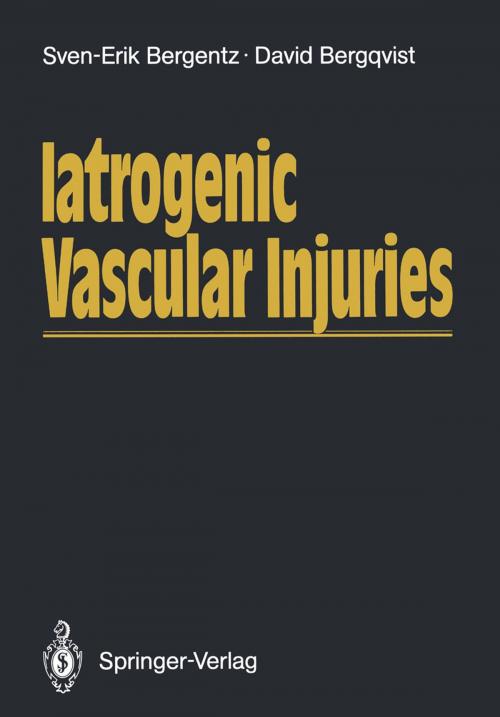Iatrogenic Vascular Injuries
Nonfiction, Health & Well Being, Medical, Medical Science, Biochemistry, Surgery| Author: | Sven-Erik Bergentz, David Bergqvist | ISBN: | 9783642740862 |
| Publisher: | Springer Berlin Heidelberg | Publication: | December 6, 2012 |
| Imprint: | Springer | Language: | English |
| Author: | Sven-Erik Bergentz, David Bergqvist |
| ISBN: | 9783642740862 |
| Publisher: | Springer Berlin Heidelberg |
| Publication: | December 6, 2012 |
| Imprint: | Springer |
| Language: | English |
This small but information-packed book is the first to focus exclusively on iatrogenic vascular injuries. It is a timely first, for the scope and magnitude of this subject have reached almost epidemic proportions recently, as a result of exponential increases in the use of invasive diagnostic and therapeutic procedures by almost every medical and surgical speciality. The data on vascular trauma from "civilian" experiences are becoming dominated by injuries of iatrogenic cause. Even were it not for medical-legal liability, the importance of prompt recognition and correct treatment of injuries that we ourselves cause is obvious, as is the need for preventive measures to be clearly identified and adopted. This book serves these needs well through a nicely balanced focus on prevention, on the one hand, with its comprehensive review of epidemiology and etiology, and on management, on the other, with its practical comments on diagnosis, treatment and outcome. The organization of this book makes it very usable. After chapters on both arterial and venous catheterization injuries, there follows a thorough analysis of injuries associated with percutaneous transluminal angioplasty and other endovascular procedures. Then, after a chapter on noninvasive vascular injuries, there follows a series of chapters dealing with vascular injuries associated with the practice of specific specialties: radiation therapy, orthopedics, neurosurgery (especially lumbar disc surgery), gynecology, head and neck surgery, urology, adult general surgery, and pediatric surgery.
This small but information-packed book is the first to focus exclusively on iatrogenic vascular injuries. It is a timely first, for the scope and magnitude of this subject have reached almost epidemic proportions recently, as a result of exponential increases in the use of invasive diagnostic and therapeutic procedures by almost every medical and surgical speciality. The data on vascular trauma from "civilian" experiences are becoming dominated by injuries of iatrogenic cause. Even were it not for medical-legal liability, the importance of prompt recognition and correct treatment of injuries that we ourselves cause is obvious, as is the need for preventive measures to be clearly identified and adopted. This book serves these needs well through a nicely balanced focus on prevention, on the one hand, with its comprehensive review of epidemiology and etiology, and on management, on the other, with its practical comments on diagnosis, treatment and outcome. The organization of this book makes it very usable. After chapters on both arterial and venous catheterization injuries, there follows a thorough analysis of injuries associated with percutaneous transluminal angioplasty and other endovascular procedures. Then, after a chapter on noninvasive vascular injuries, there follows a series of chapters dealing with vascular injuries associated with the practice of specific specialties: radiation therapy, orthopedics, neurosurgery (especially lumbar disc surgery), gynecology, head and neck surgery, urology, adult general surgery, and pediatric surgery.















